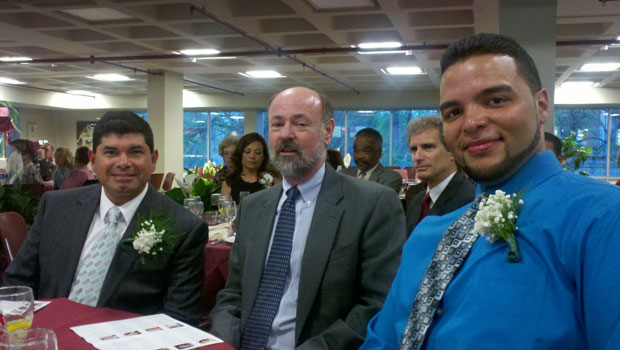The Justice Studies curriculum complements majors such as sociology, political science, anthropology, philosophy, history, public administration and social work. It is an excellent choice for those interested in careers in public service, criminal justice research and policy development, corrections, mediation and labor relations, law enforcement, social service, law, or fields dealing with children and adolescence.
The minor requires a total of 26-28 credit hours and the major a total of 52-55 credit hours in specific courses selected from several liberal arts departments. Fifteen hours of specified General Education courses serve as an introduction to the major, and eight hours of research methods are required of all students.
B.A./M.A. Admissions Option
Students matriculated in the Rhode Island College undergraduate justice studies major may apply for a combined B.A./M.A. option. Students can apply after completing 75 credits, including at least 20 credits in courses counted towards the Justice Studies major, and must have a minimum G.P.A. of 3.0. Application requirements can be found on this webpage; however, the GRE may be waived for B.A./M.A. applicants. B.A./M.A. students are permitted to count 9 graduate credits towards their undergraduate requirements.

Lieutenant Luis San Lucas (Alumni Honor Roll, Justice Studies/Sociology), Dean Earl Simson (Arts and Sciences), and Andy Montan (Alumni Student Scholarship Winner, Arts and Sciences) at the 2013 Annual Alumni Awards dinner held May 9.
As stated in the curricular proposal that provided the foundations of the Justice Studies program, the major seeks to fulfill the following goals for criminal justice education in a liberal arts context.
- Understand basic criminal and social justice concepts and theories.
- Demonstrate an understanding of the relationship between criminological and sociological theories, research design, and interpretation, and engage in work developing research literacy.
- Understand and engage in qualitative and quantitative data collection and analytical processes.
- Communicate, in written and oral form, criminological, sociological, and other social justice arguments.
- Develop a sociological perspective on the justice system.
- Demonstrate a scholarly understanding of crime, its causes, and social consequences.
- Become familiar with debates and guidelines about ethical, professional, and moral standards involved in criminal justice activities.
- Become familiar with global and comparative-historical perspectives on justice systems.
- Become familiar with issues of social justice both within and beyond the criminal justice system.

